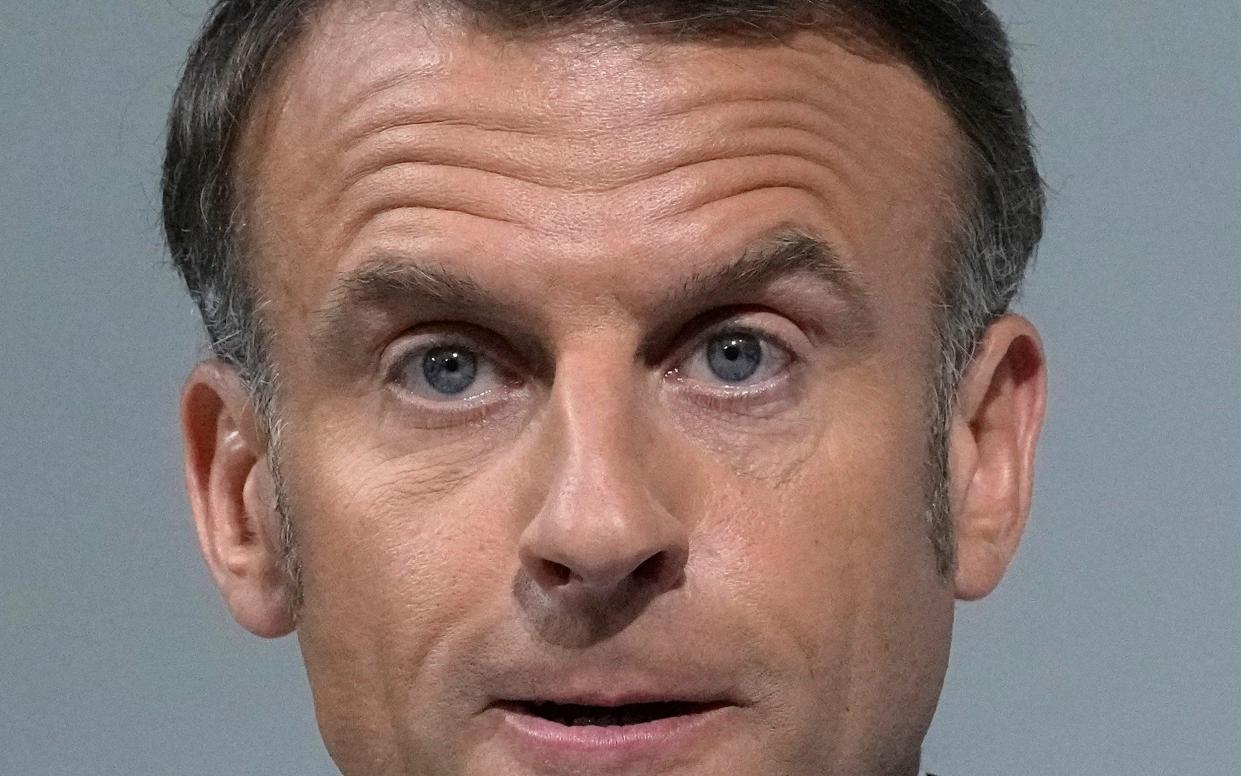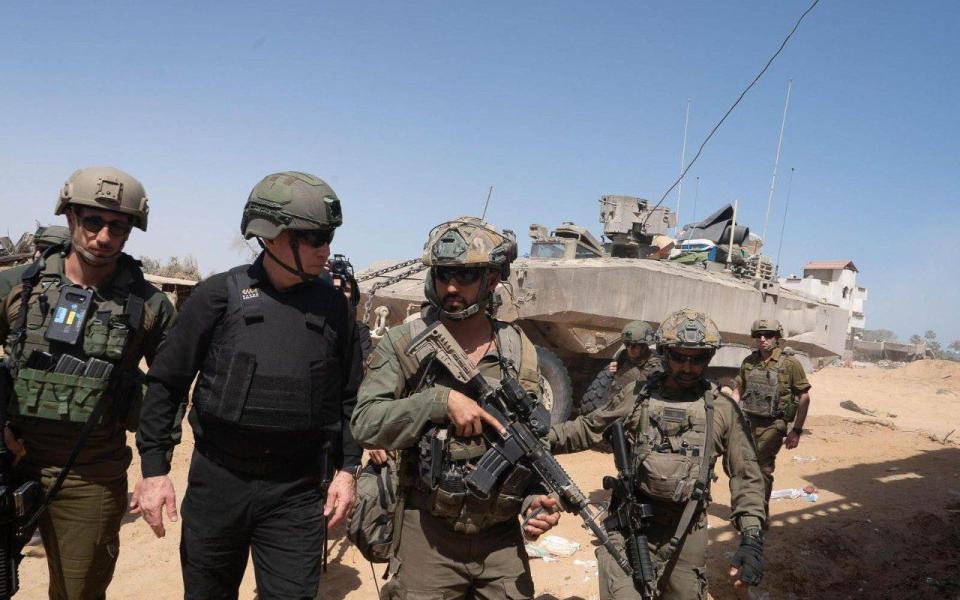Israel rejects Macron’s initiative to defuse Hezbollah conflict

Israel’s defence minister has rejected Emmanuel Macron’s initiative to work together on defusing an escalating conflict along the northern border with Lebanon.
Hundreds of rockets were launched by Lebanon-based terror group Hezbollah into northern Israel this week, in an intensifying exchange of fire that has raised fears of an all-out regional war.
But Yoav Gallant on Friday ruled out joining a plan pushed by the French president that included France, the United States and Israel forming a contact group to try to find a solution.
“As we fight a just war, defending our people, France has adopted hostile policies against Israel,” Mr Gallant said in a statement.
“In doing so, France ignores the atrocities committed by Hamas against Israeli children, women and men,” he wrote, confirming that Israel would not be party to the “trilateral framework”.
The defence chief’s remarks came after President Macron said on Thursday at the G7 summit in Italy that the three countries had agreed to step up joint efforts to avert a conflict.
“With the United States we agreed on the principle of a trilateral [contact group], Israel, the United States and France to advance on the roadmap that we proposed and we will do the same with the Lebanese authorities,” Mr Macron told reporters.
Mr Gallant did not elaborate on why he gave such a strong retort, but it follows a ban by the French authorities on 74 Israeli defence companies from exhibiting at Eurosatory, one of the world’s largest defence fairs that takes place near Paris next week.

“Conditions are no longer met to host Israeli companies at the show at a time when the president is calling for Israel to cease operations in Rafah,” the French defence ministry said when announcing the ban at the end of May.
The decision came just days after the Israeli bombing of a camp for the displaced in Rafah, Gaza that triggered a fire, and international outrage, when 45 people were killed in their tents.
Hezbollah has been firing rockets, anti-tank missiles and explosive drones at northern Israel since the war began in Gaza, following the Hamas terror attacks on October 7.
Israel has fought back by targeting Hezbollah bases in southern Lebanon and last week killed Taleb Sami Abdullah, the most senior commander to die in the eight-month war.
Hezbollah has ruled out ending hostilities until there is a ceasefire between Israel and Hamas, which has so far proved elusive.
In the meantime, tens of thousands of civilians have been forced to flee from both sides of the border and the risk of a wider war being triggered accidentally or intentionally has sparked alarm in global capitals.
In recent weeks, the White House has warned Israel not to embark on “a limited war” or ground invasion which could push Iran to intervene.
US President Joe Biden’s envoy Amos Hochstein is expected to arrive in Israel on Monday to help calm tensions, Axios reported.
Preventing violence along the Israeli-Lebanese border from exploding into a war, was now an urgent priority for the Biden administration, alongside achieving a ceasefire in Gaza, it said.

 Yahoo News
Yahoo News 
